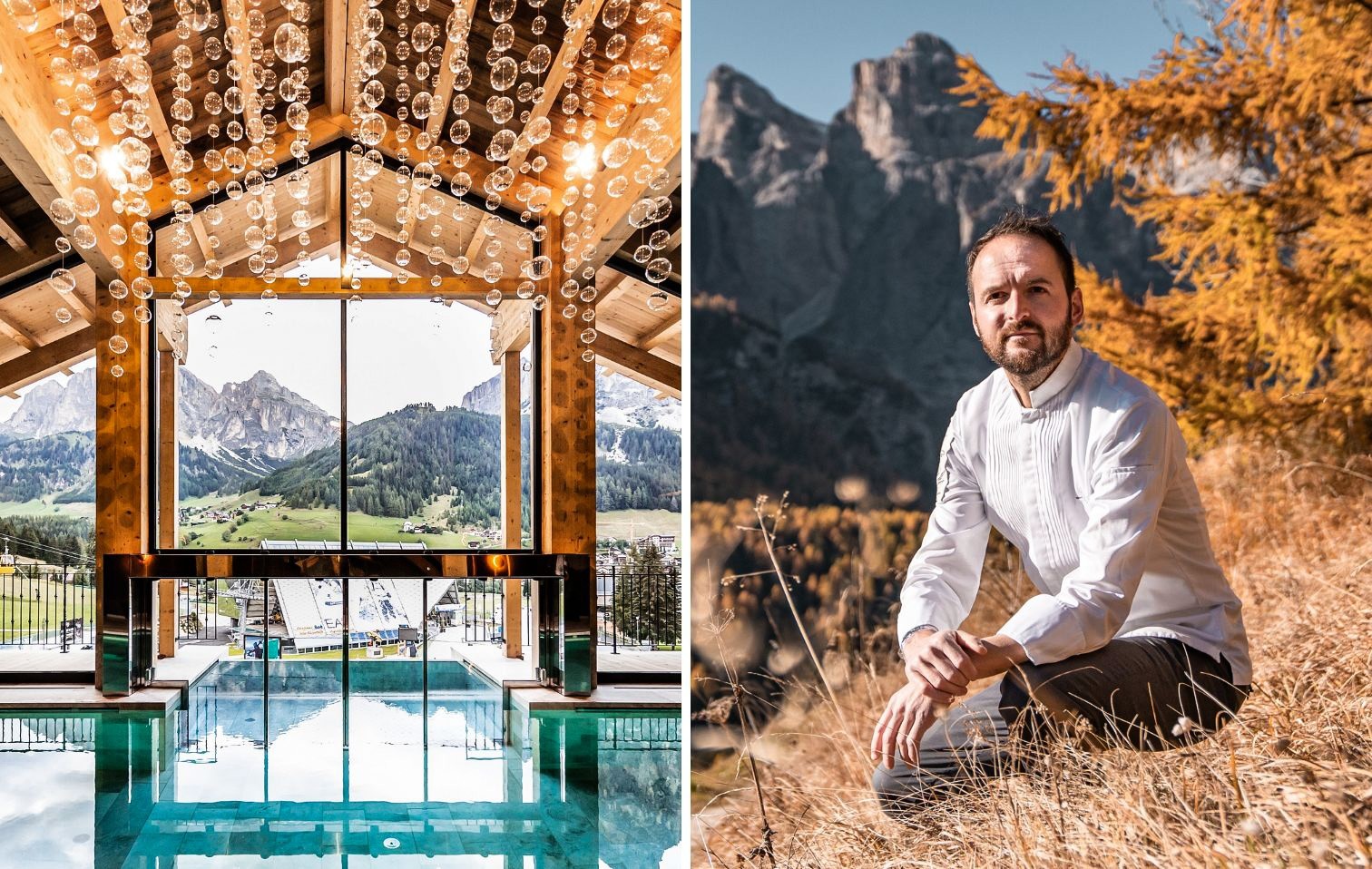Nicola Laera breaks new ground in the gateway to Dolomite flavors, turning the product into an end rather than a mere means of expression: here's his "local-international" menu in the fine dining of Hotel Arkadia.
Upon arrival, all eyes are on him, Sassongher, among the towering peaks of Alta Badia. With its sturdy limbs, bare or covered in a thick, white cloak, it seems to watch over Corvara from any angle. But, shifting your gaze a few meters, you'll discover one of those places where the promise of beauty serves as a prelude to substance.
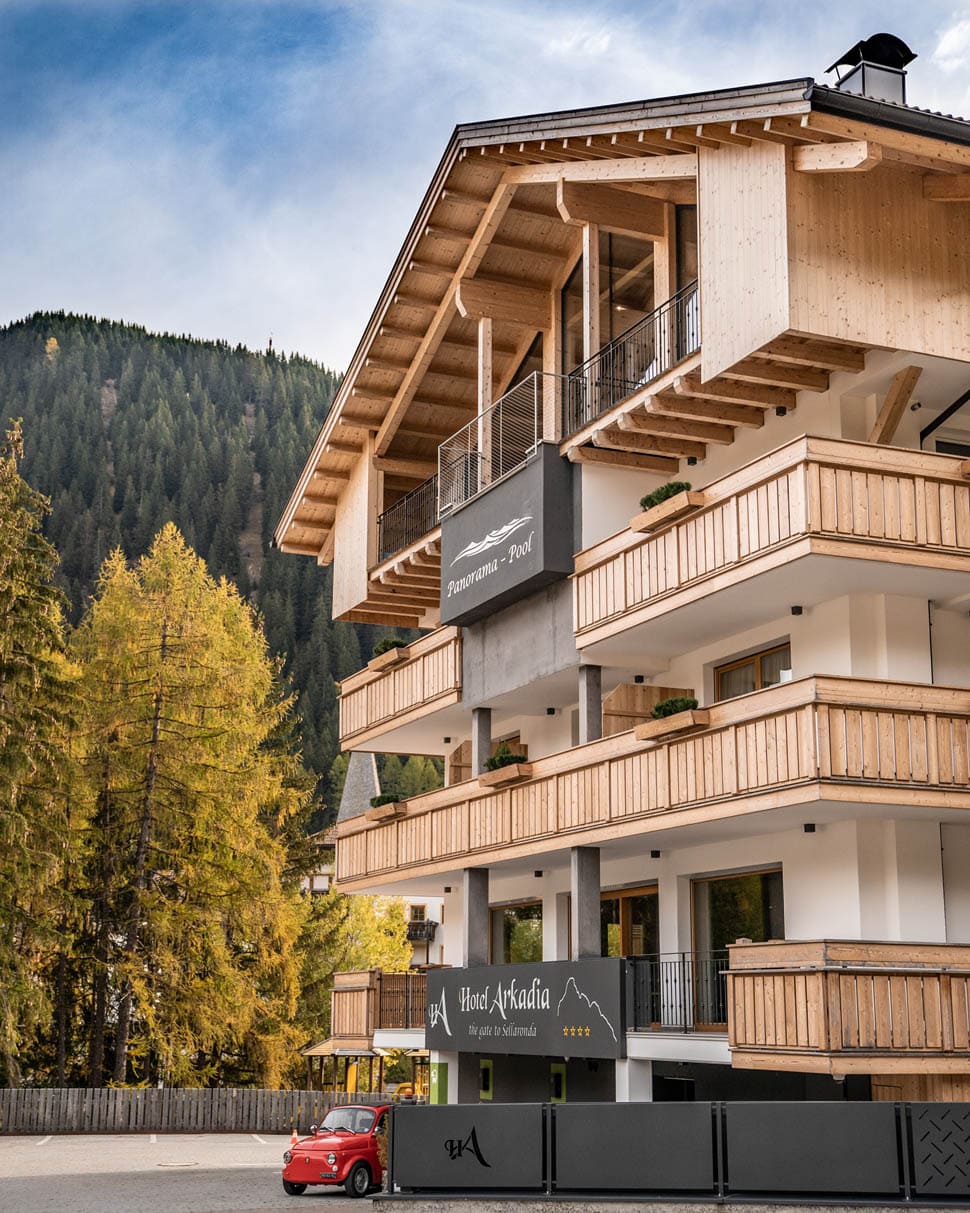
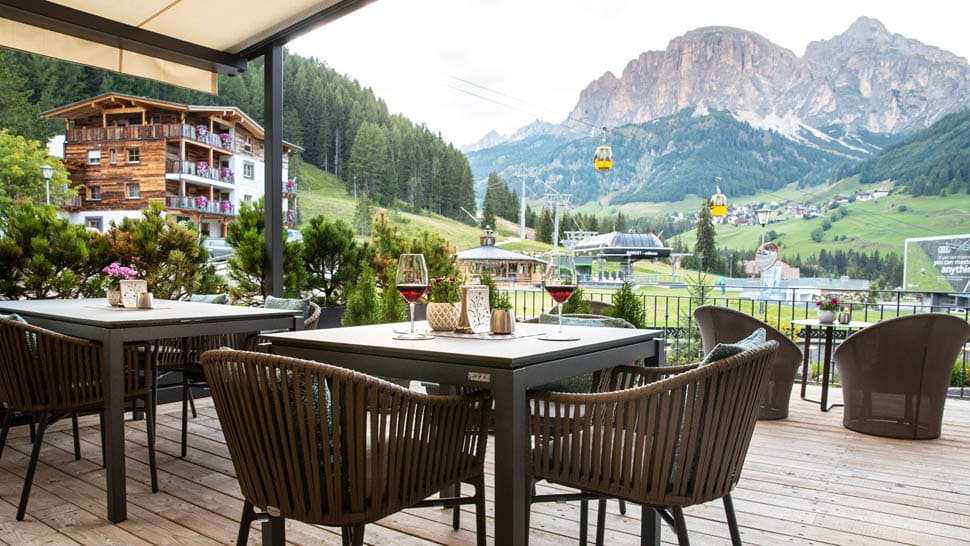
Arkadia could be just another hotel at the base of the slopes, with its pool extending in a straight line towards the rocky massifs and suites injecting luxury into the Ladino hospitality. However, inside, there's a sign that isn't afraid to open new paths into the gateway to Dolomite flavors, breaking the isolation barrier with international cuisine.
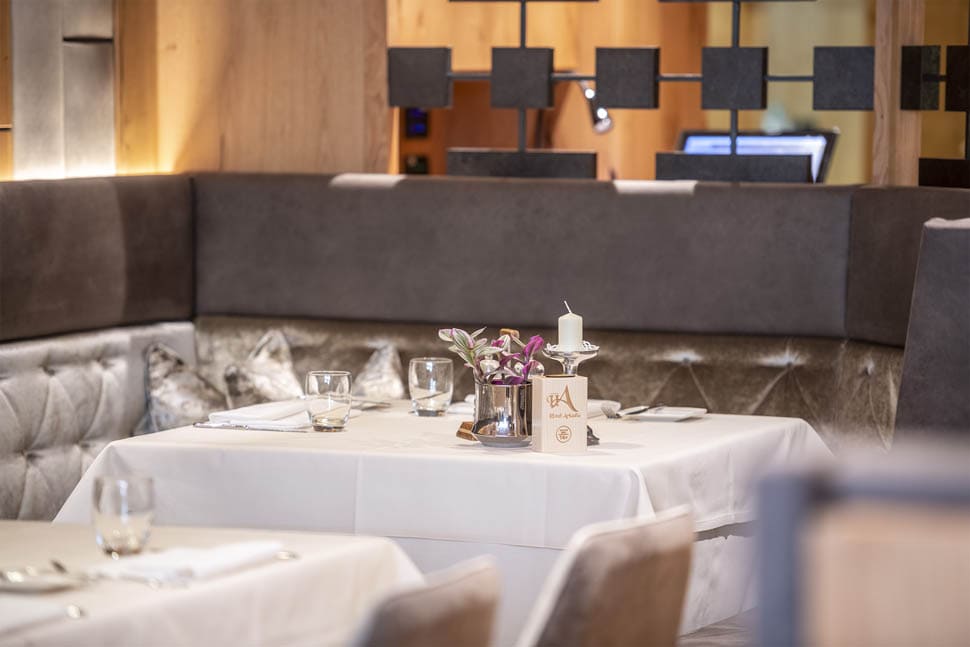
So, if the name Nicola Laera sounds familiar to anyone keeping an eye on local gastronomic news, his latest project rises to the top to look beyond the peaks, expanding the visual and gustatory perspective rapidly.
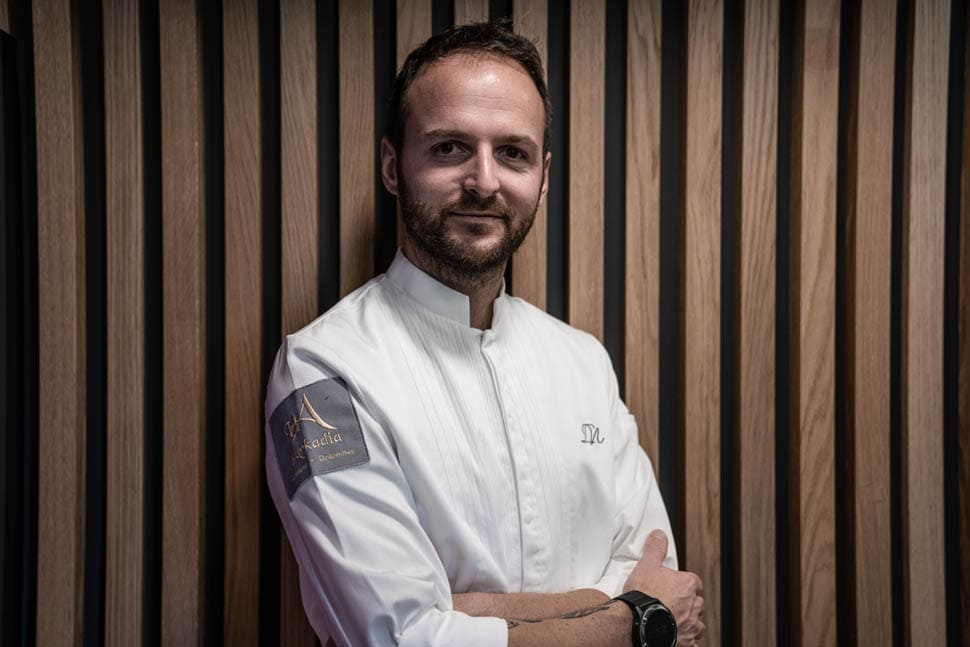
The Chef & Hotel Arkadia
Time passes, but for Nicola, the wind still blows in the same direction. His elective affinity with Norbert Niederkofler, with whom he spent 9 years (2 as a sous chef) behind the scenes at St. Hubertus; Madonna di Campiglio and the baptism of fire at Stube Hermitage, where he directed his own performance; the diverse audience at Stüa de Michil, with the achievement of a Michelin star at Hotel La Perla: if he were to look back, he would see a long string of black runs that are now just another adrenaline rush on the course.
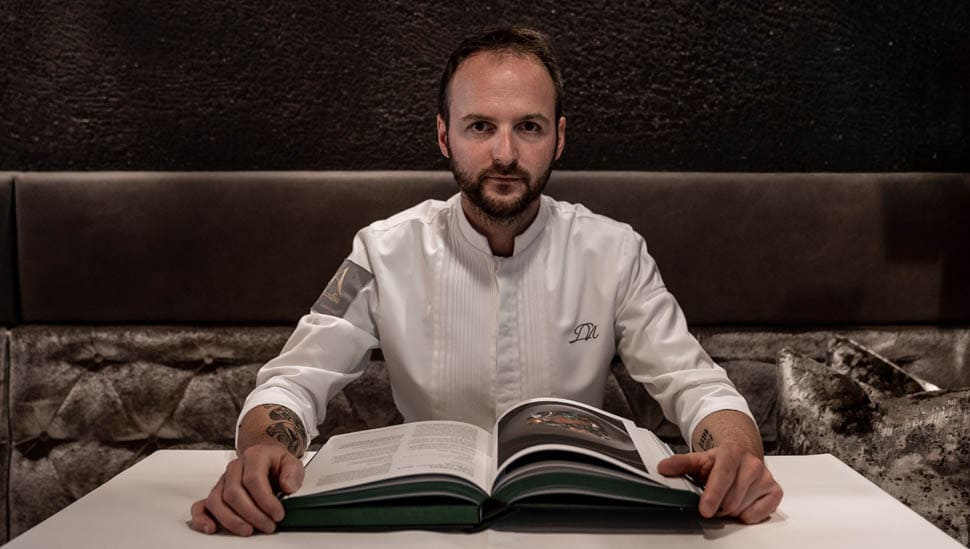
So, at Burjè 1968, the flagship of Arkadia, built by the Coser family right next to the cable car, he continues to seek that same sensation, whether foraging in the forest or on a Mediterranean raid, as long as the product remains the end and not just a means of expression. His dishes are imbued with the energy of the ingredients, whether it's sea urchin transformed into ragout or mountain ricotta ready to nestle between the layers of alpine mille-feuille served at the end of dinner.
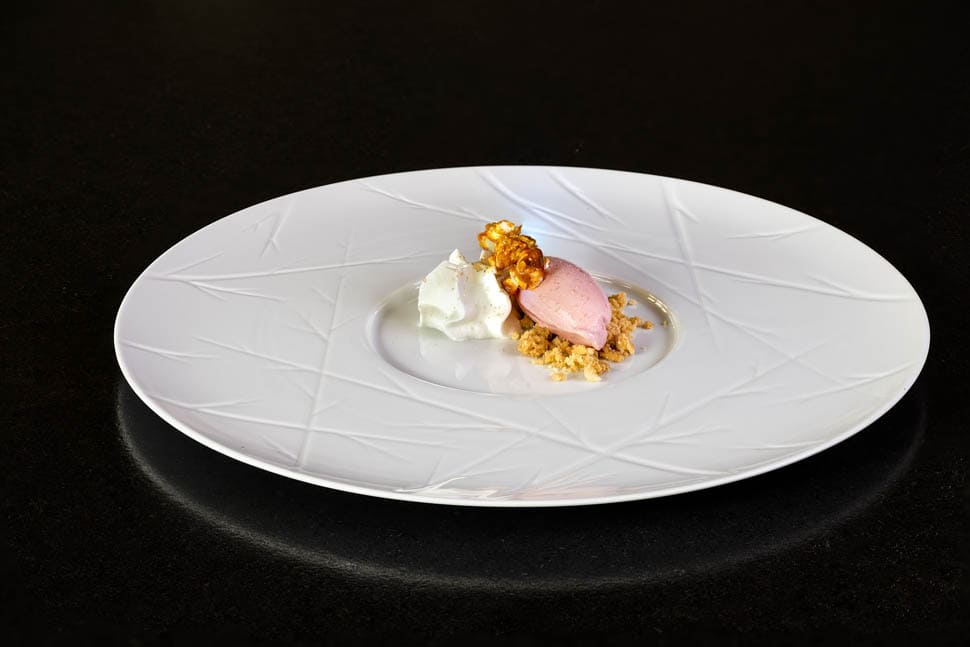
And the setting goes hand in hand because every space, from the gourmet dining room with its understated romanticism devoid of excessive decoration to the quietly modern rooms, contributes to defining a "contemporary local" style, showing how it's possible to rejuvenate mountain architecture.

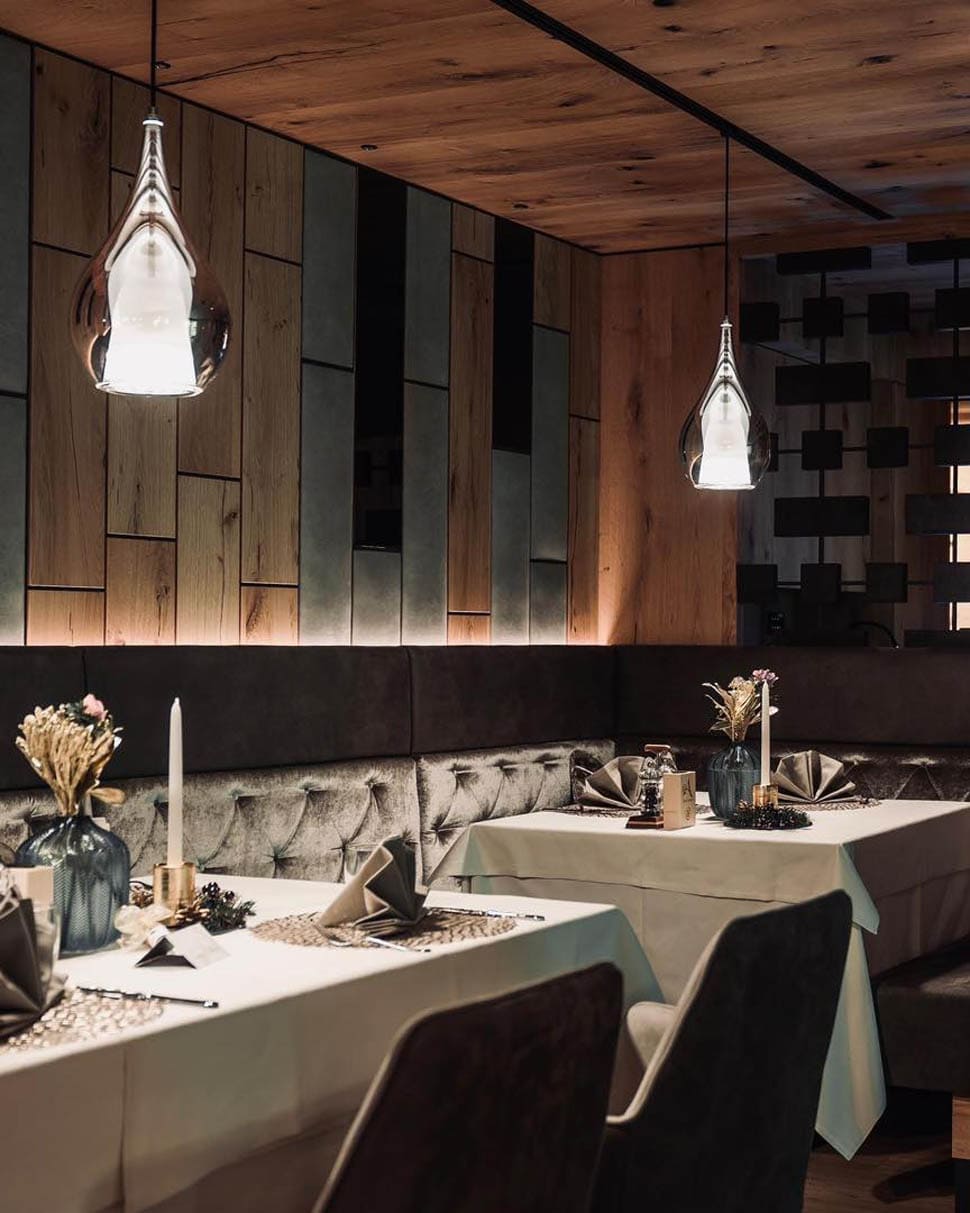
All this is achieved with precision in working with wood (for example, the reception is made from reused beams from a historic local farmhouse) or by adding a fireplace lounge next to the terrace bar, expanding the boundaries of leisure between tactical drinks and leisurely afternoon readings. So, little by little, you venture into a nature-inspired labyrinth molded in the image and likeness of the environment, never losing sight of pure enjoyment.
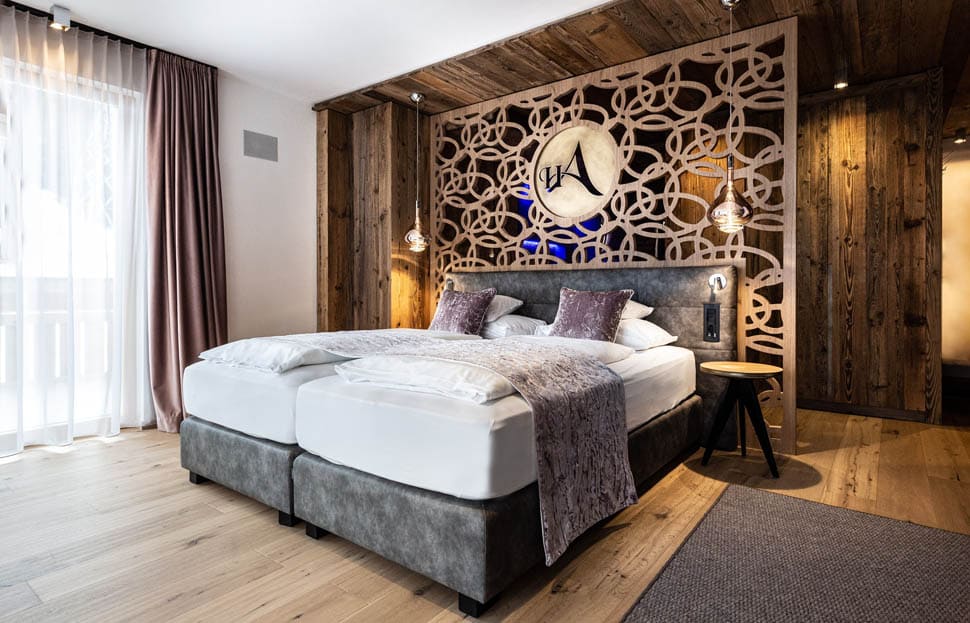
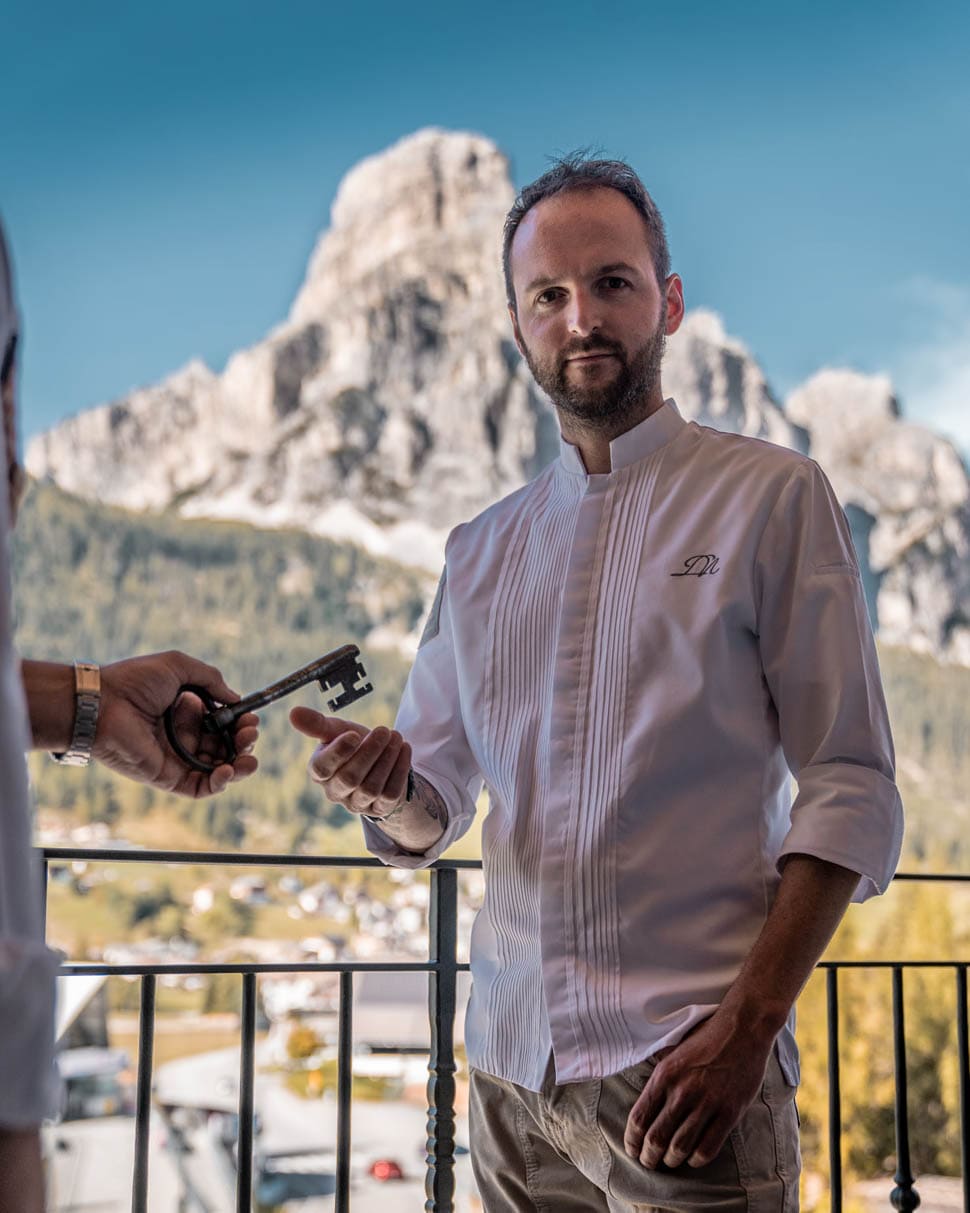
The Hotel's cusine & Burjè 1968
Upon waking up, any languor retreats in the face of krapfen, mountain dairy yogurt, and extra slices of Linzer Torte, with a generous spread of jam to brighten the mix. This is followed by an accelerated course in South Tyrolean charcuterie, which might change your mind about avoiding the cold cuts option due to the aroma of the buffet. After a day of hiking at 2000 meters or a dip in the panoramic pool on the third floor, lunch offers a taste of the bistro's offerings, satisfying curiosity with some regional previews.
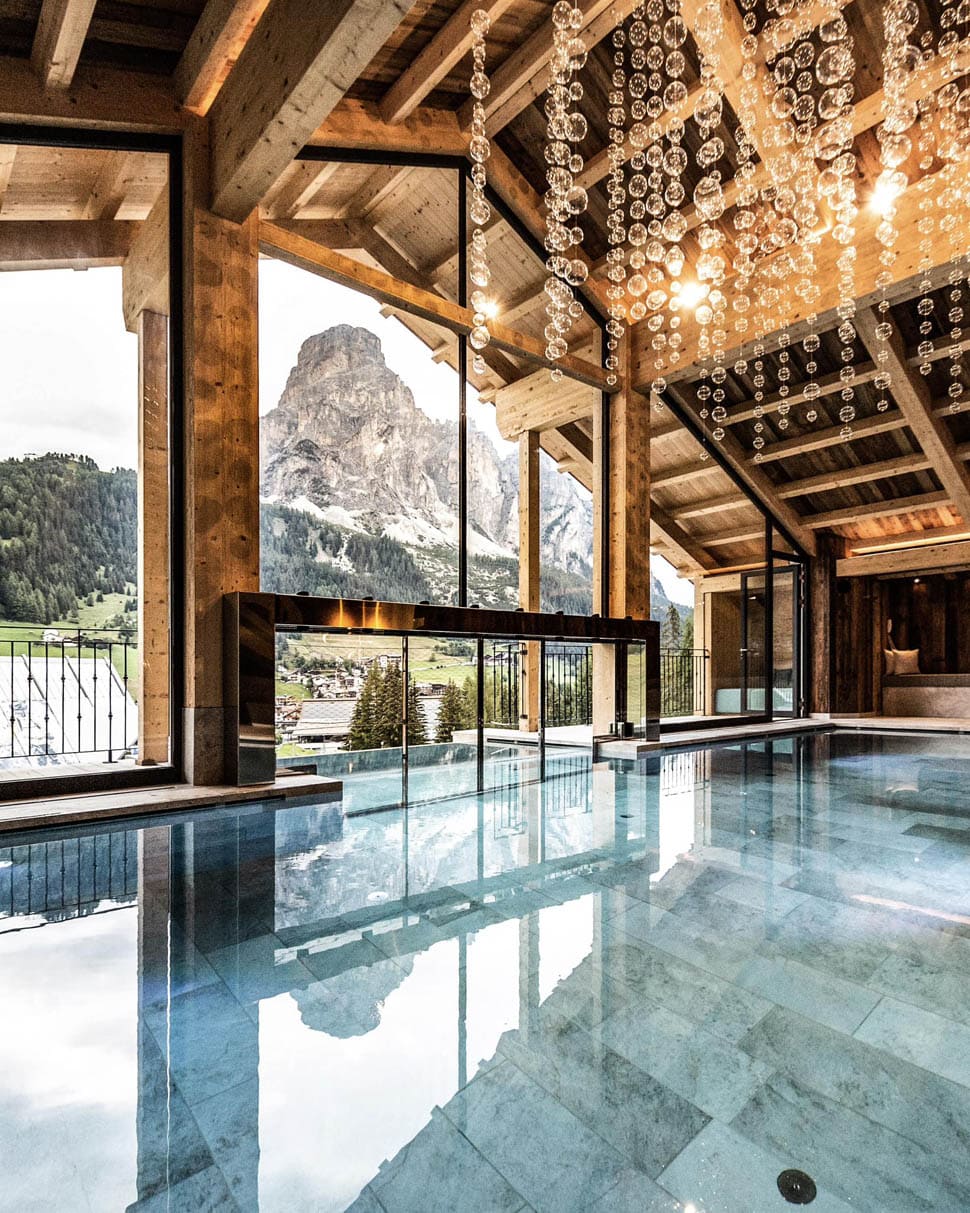
You can opt for the Ciampidel beef burger, the intense gray cheese Gnocco with cabbage and speck salad, or the delicate Spinosini (thin pasta threads) with Cerato fondue, raw cardoncelli mushrooms, and truffle, with a sweet ending of Strudel or Kaiserschmarrn (the super-sized pastry-based snack that comforts athletes at high altitudes, enriched here with blueberry sauce and vanilla ice cream).
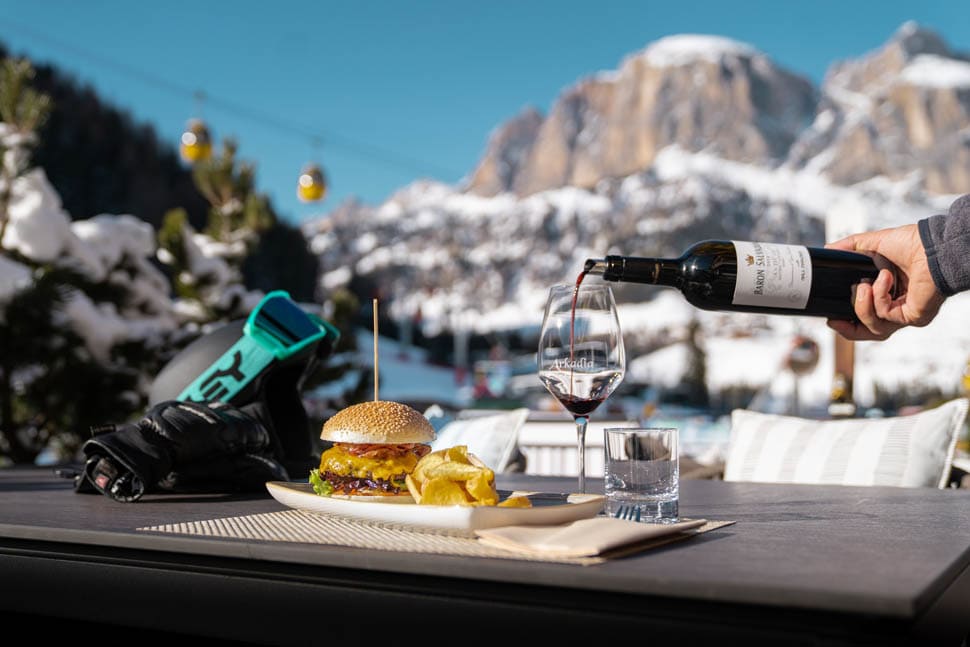
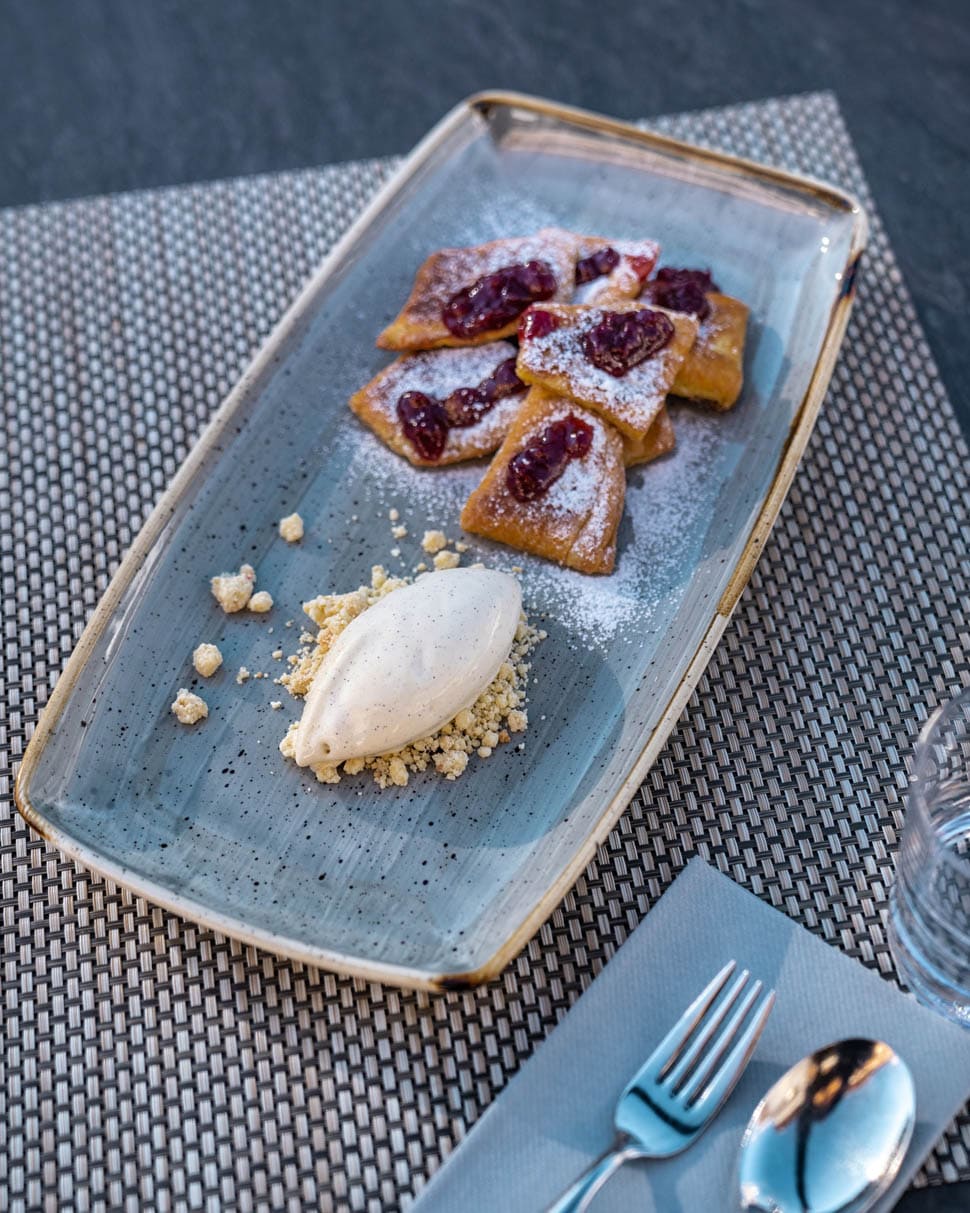
The highlight of the wine cellar is a selection of labels immersed in the shadow of small producers, which the maître and sommelier Massimo Di Berardino highlights with a daily survey of never-before-seen wineries. The confirmation comes as you listen to his tales during dinner, amidst newly lit candles and bottles that trigger stories about the hidden treasures of Alta Badia.
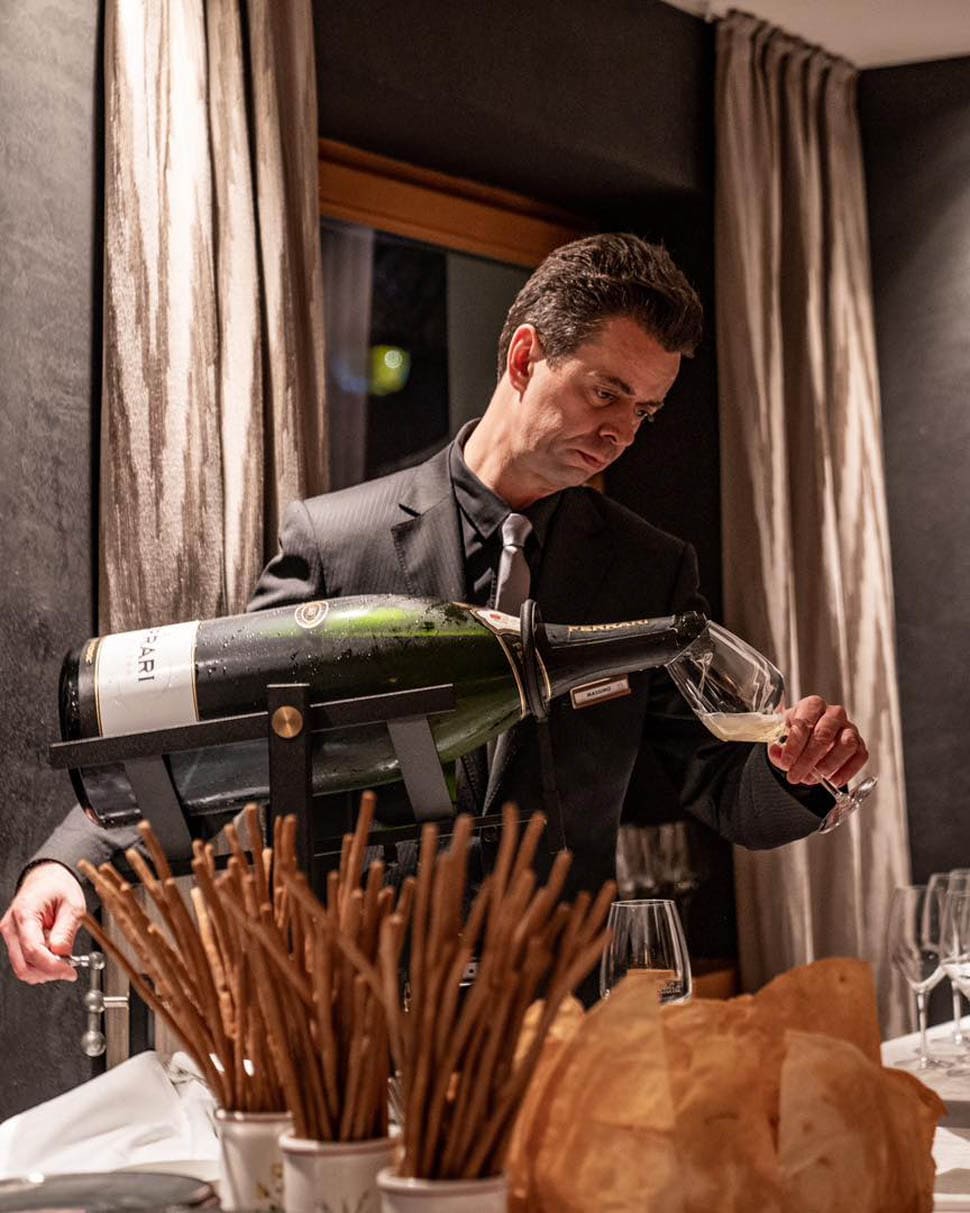
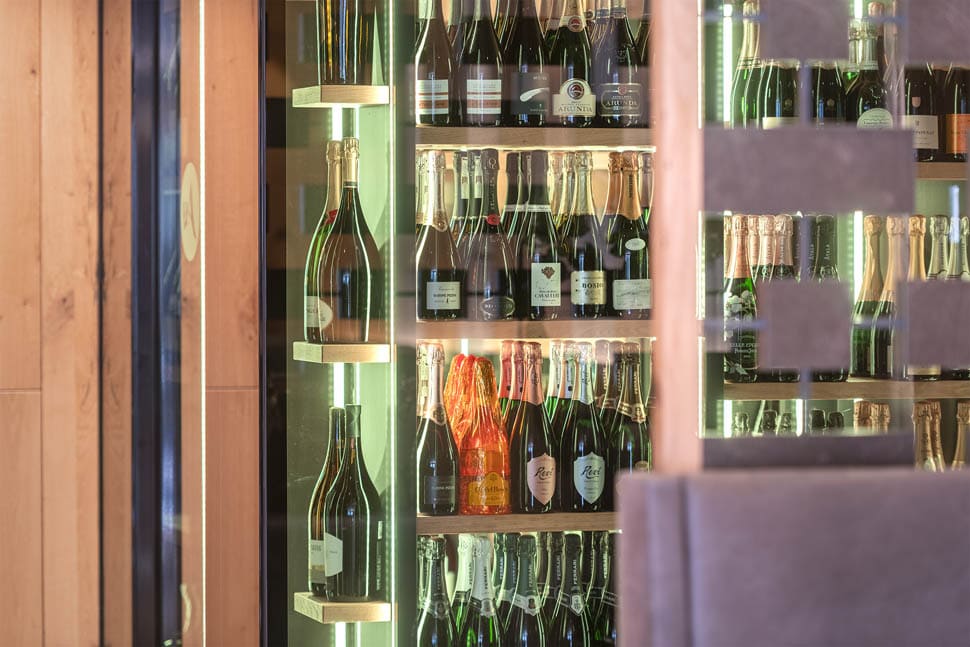
The dishes
Forget postcard-perfect food or mainstream pairings: if there's one thing Burjè demonstrates, it's how to rely on your own resources by finding ways to introduce them to the world. This results in cuisine that is sensitive to global influences, sometimes touching on Asian wisdom and other times French solidity, but always the offspring of one Mother House: Alta Badia, a privileged observation point on an endless panorama.
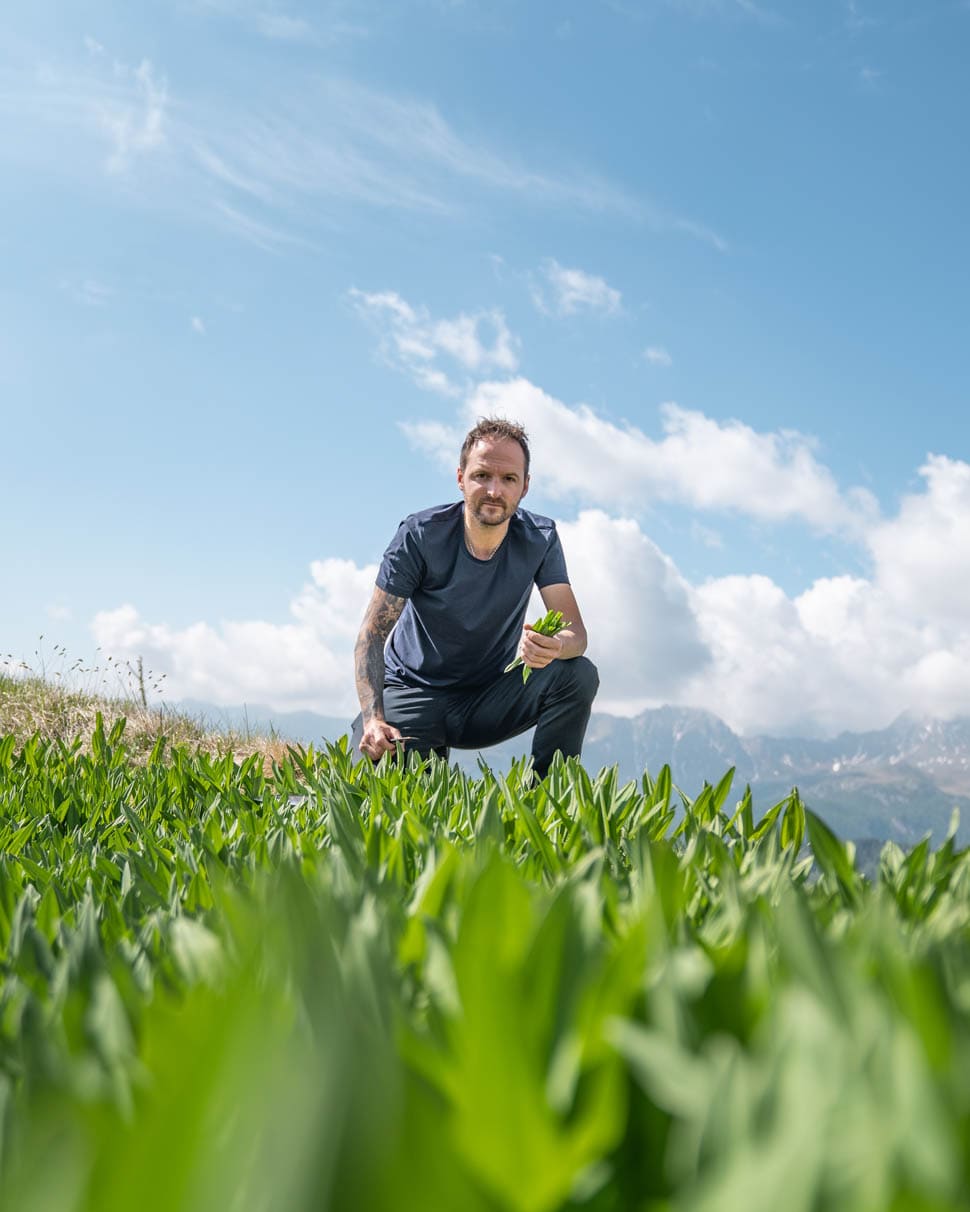
In other words, it means traveling hundreds of kilometers with your palate while physically remaining in the same village of 1300 souls where you parked your car upon arrival. The choice lingers between two menus - 5 or 7 courses - with the evening divided into two parts to allow the dining room to breathe.
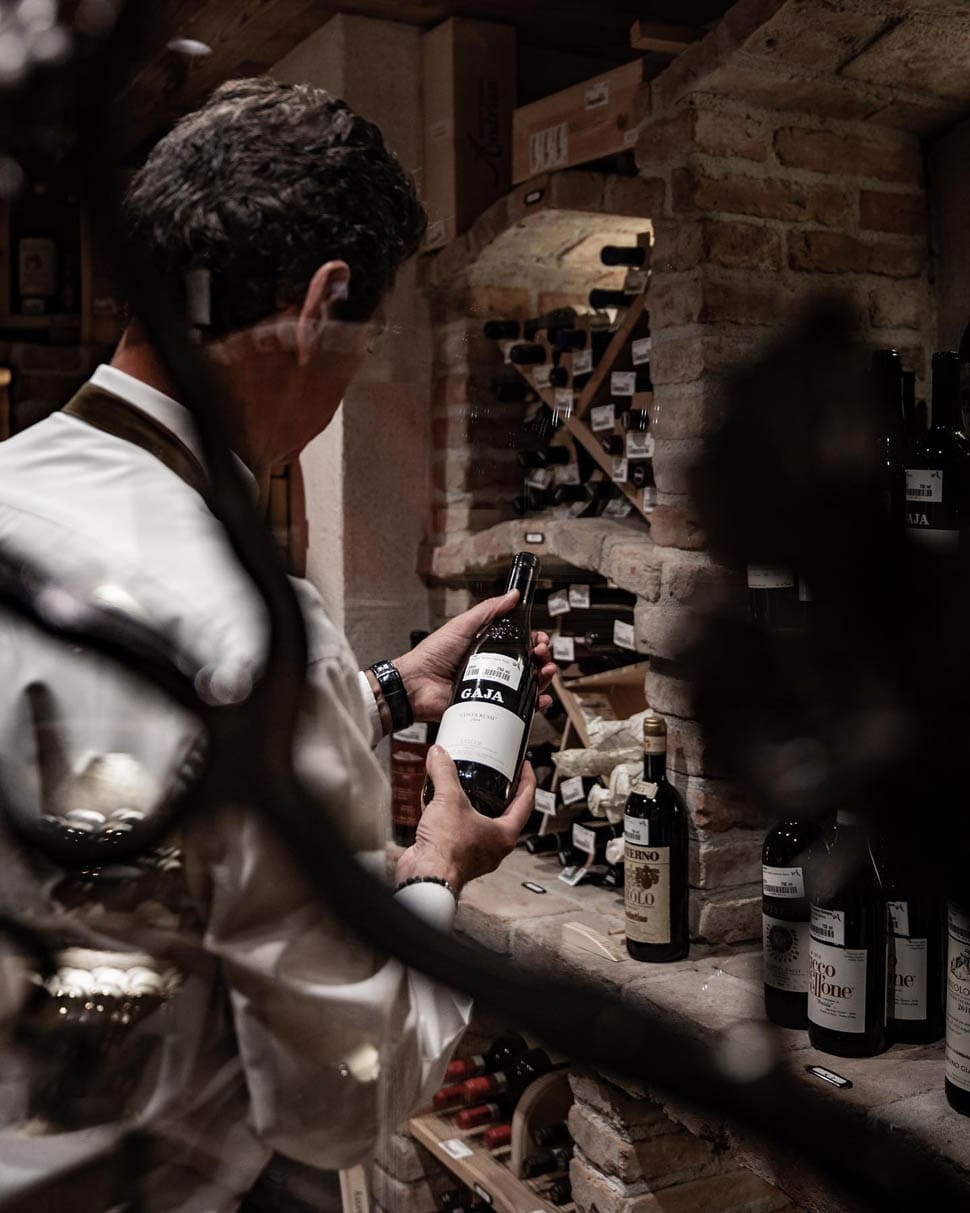
At the beginning, a lively scoop of butter races across Altamura-style bread, quickly covering every pore. The star of the show is undoubtedly the Battuta of local beef fillet, garlic mayonnaise, and garden radishes with miso, generously sprinkled with Schüttelbrot, a crunchy bread easily preserved, with origins tracing back to the historic lunchboxes of South Tyrolean shepherds. In your mouth, the umami of fermented pasta and "reinforcement" anchovies lifts the meat to new heights, cleverly using natural salt.

The Zuppetta of Gran Sasso snails in acid butter, parsley, and trout roe takes care of the iodine, a tetris of deconstructed richness that starts with a creamy indulgence and glides into an unexpected burst, ending with round fish eggs.
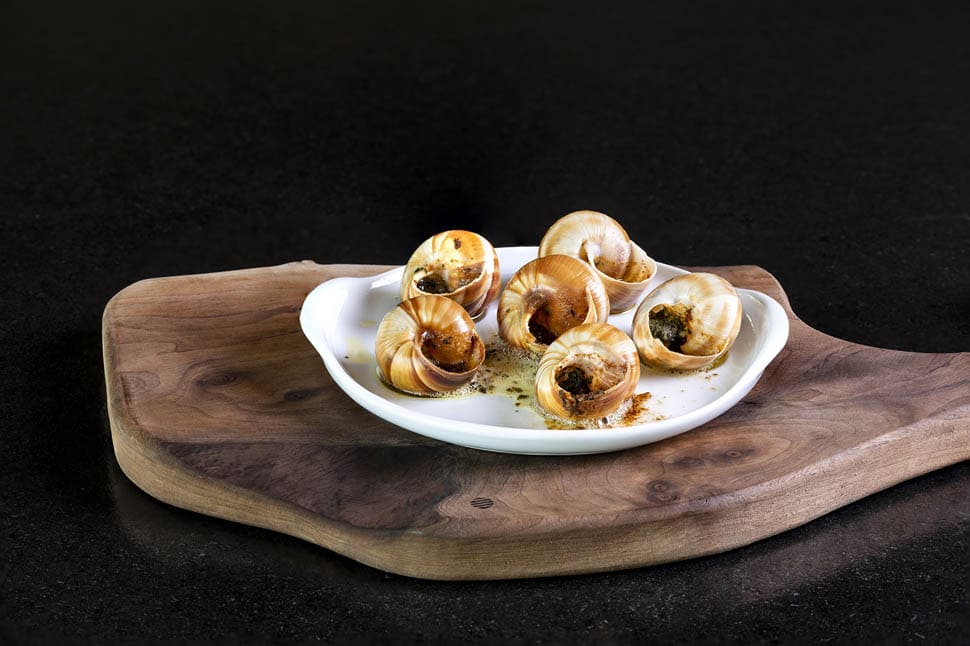
Pastel shades, gentle aromas, and carbohydrates enter the dance: in the Risotto, the chef lets the fruit take the lead, while the spoon breaks a creamy wave of green apple, wasabi root, caviar, kefir, and lovage. The secret lies in the "double alpine butter" - acid and wasabi - "with the root we collect ourselves and gradually incorporate into the fat." It results in a fresh and vibrant embrace: almost a "technical fabric" capable of blending the tartness of apple and cream with kefir (produced weekly by the kitchen team) and the density of the grain.
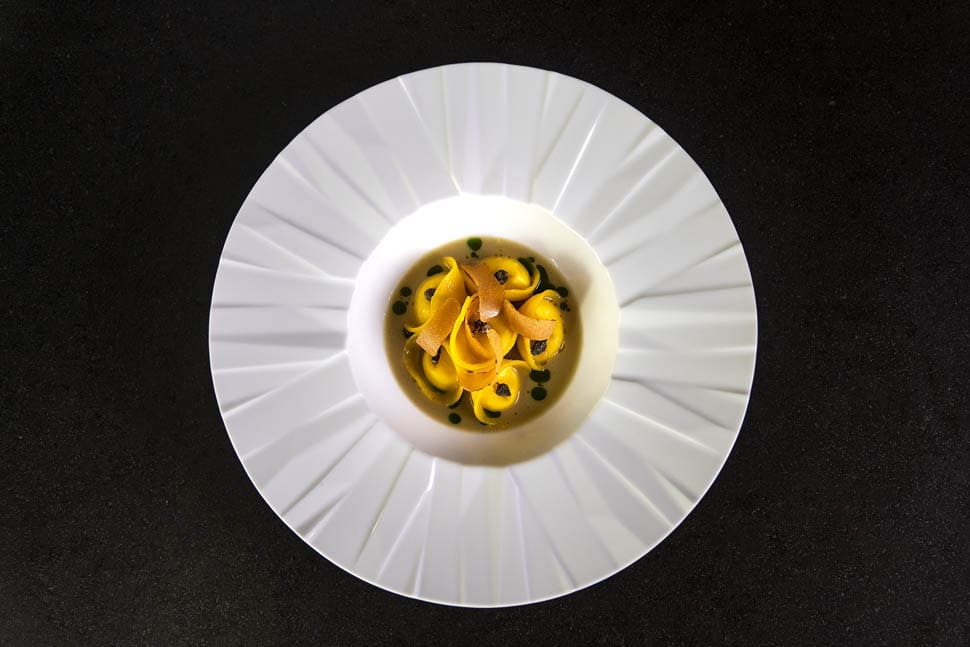
Moving from one starch to another, the Fusillone di Assante in crab sauce, caper stew, sea urchins, and burrata is the benchmark of a journey that lines up hot and cold on the same vivid screen. "I love combining dairy with fish to activate the exchange between the savory and the delicate-juicy parts." Thus, the sauce based on anchovy colatura and fermented chili is sweetened, and the heat is tamed.
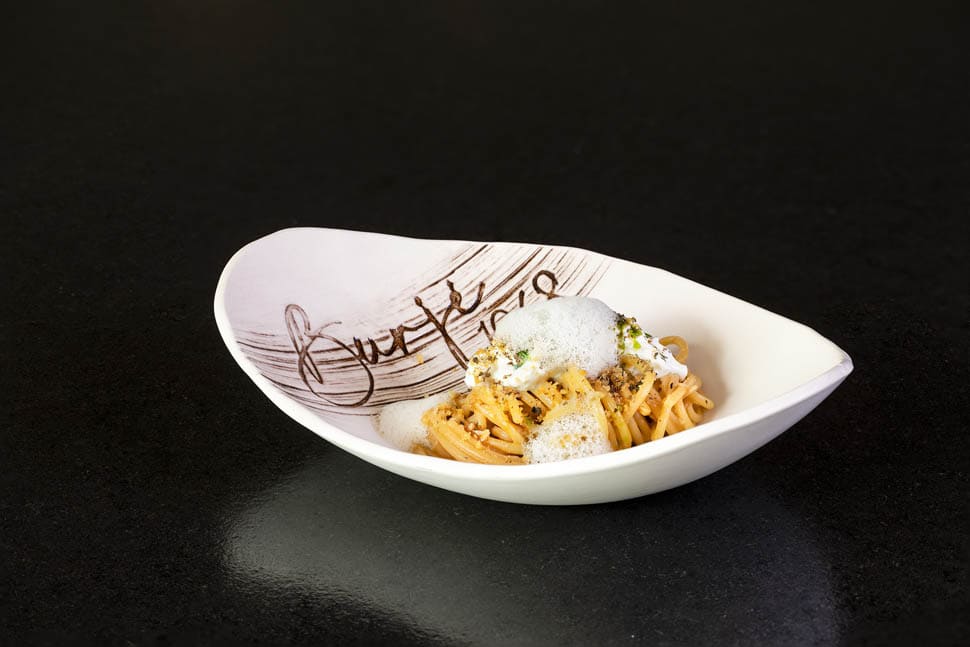
But perhaps the bestseller is the fried veal sweetbread with finferli mushrooms, marinated shiitake mushrooms in ponzu sauce, hollandaise sauce, and truffle, a sign of a "healthy obsession" with pre-cooking phases. Among the resurgent second courses of fine cusine, at Burjè, it undergoes a 48-hour bath in buttermilk, which tames the fiber before vacuum sealing. "Then we cool it with ice water for thermal shock, and it's then breaded, varying the outer texture to keep the heart soft."
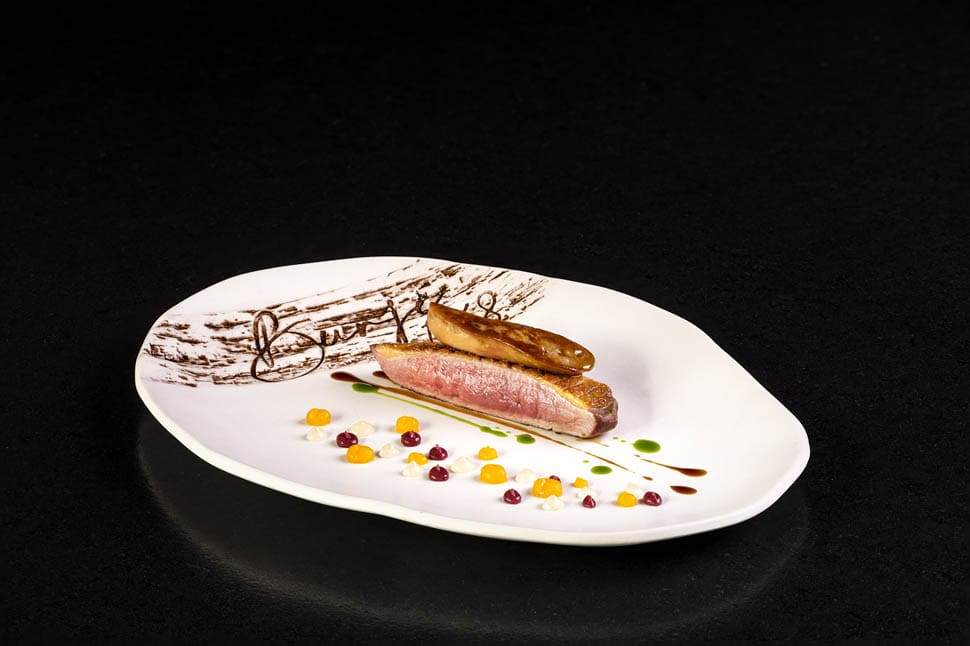
Finally, a close-up on dessert, born from an armistice with species far from easy to handle: "We cultivate a blackcurrant plant that produces extremely acidic and tannic blackcurrants. Seeking new ways to use it, I thought of composing the dessert with elderberry, which naturally grows at 1600 meters in late summer." The latter becomes sorbet, the first a fine granita, along with a yogurt cream and a hazelnut duo (crumble - sandy) for a lively chewing rebound. Literally, into the wild.
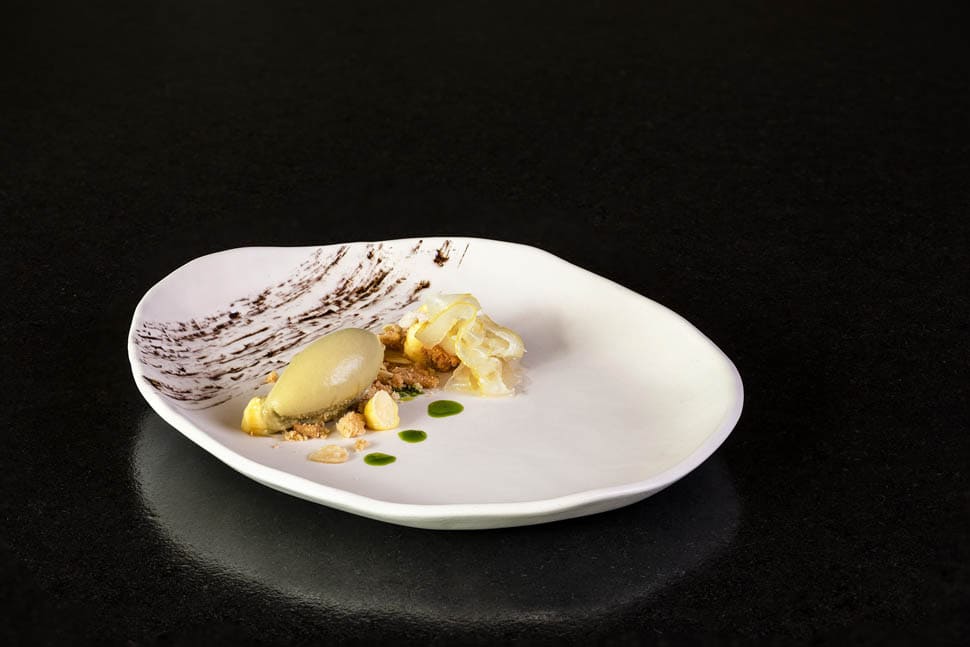
Address
Hotel Arkadia- Ristorante Burjè
Str. Burjé, 11, 39033 Corvara in Badia BZ
Tel: 0471 836043
